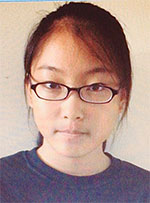“Land of the Free, Home of the Brave”
2017-09-18 (월) 12:00:00
Sarah Choe North High School 12th

Sarah Choe North High School 12th
Described as “the land of liberty,” America has long been a symbol of democratic ideals, acceptance, and a refuge from persecution. However, with the Trump administration announcing today the end of the nation’s Deferred Action for Childhood Arrivals, the controversy concerning immigrant status policy has become applicable not only to immigrant parents but children as well and they are fighting fiercely to defend their rights, their home, and everything they have known.
The Deferred Action for Childhood Arrivals, or DACA, temporarily granted immigration status to children who entered the U.S. illegally children who have now grown into early adolescence or adulthood. Many of them, because they were brought by their parents in infancy or early childhood, harbor little to no memory of their birth country. These thousands of children are particularly targeted by this legislation, and although many adults are calling for legal protection for the students, children, and adolescents whose status would be jeopardized by the program’s termination, the children are taking it upon themselves to defend DACA. Within two hours of the announcement, over a million social media posts were recorded as American immigrants protested the removal of their status, plunging their future into uncertainty. One youth wrote earlier today on Facebook that “I like many other children who have been brought here since we were children didn’t make the choice to come here but was raised here all we know is America.” It can be sure that he speaks for the nearly 800,000 DACA recipients when he says that our home is not our home country which we do not know, but America, which is “all we know.
”As a second-generation immigrant whose parents emigrated from Korea in pursuit of a better life, my life may not be directly affected by the removal of DACA, but that does not mean I will stand idle as my friends and family members face a real and present danger. Regardless of legal status or the barrier of skin color or language, we have grown up, shared memories, and faced hardships together. I believe that as long as we are able to connect and see past nationality, there is always hope and one day we can overcome the boundary lines it is never impossible.
<
Sarah Choe North High School 12th>


